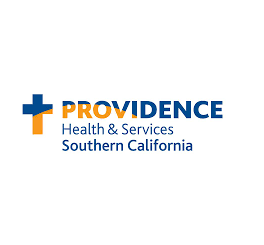Transitioning from a Spiritual Care Department to a Center of Spiritual Health in the Community
May 18, 2020
Teleso Satele and Bryan Ferry, ACPE Certified Educators

By
Teleso Satele and
Bryan Ferry, ACPE Certified Educators | May 18, 2020
Like many CPE programs, Providence St. Joseph Health Southern California
System for CPE moved quickly to online services and education as the reality
of COVID-19 and the precautions of social distancing came into full view.
Our concern was the safety of our residents, modifying our program to
fit the current climate and making sure our residents felt supported and
equipped to provide spiritual care during this pandemic. The transition
was relatively smooth with few adjustments needed to acclimate to a more
virtual CPE program.
In response to the COVID-19 crisis, we shifted all our class sessions
to an online forum. Through Zoom, our residents are still able to participate
in our regular CPE group activities as well as receive feedback and support
from the CPE educator and fellow residents. In March, our clinical CPE
training moved quickly to focus on learning tele-chaplaincy, a form of
chaplain outreach that uses phone/video conferencing to provide spiritual
care to patients, families, and caregivers. Although tele-chaplaincy is
not a new concept, it was a new method of outreach to our CPE program.
We drew upon Providence St. Joseph Health’s resources to help ease
our transition quickly and effectively. We provided background information,
research, and training exercises to give our residents’ the skills
to properly provide spiritual care through tele-chaplaincy. Our curriculum
changed to include training techniques on how to continue to convey empathy
and compassion even when you are not physically present.
When COVID-19 restrictions first came into place, our residents transitioned
to providing spiritual care solely through tele-chaplaincy. As the program
moved forward and more PPE became available, we gained more and more clarity
on how to structure our program during this unique time. Now our residents
provide spiritual care by both tele-chaplaincy and in-person care to patients
and caregivers on non-COVID-19 floors, and tele-chaplaincy to patients
and caregivers on COVID-19 floors.
In addition to patient visits by way of telephone calls and in-room patient
visits, our residents have participated in bereavement follow-ups after
the hospital, connecting with family members, mailing grief resources,
and providing virtual memorial services and virtual grief support groups.
In this new context, residents are coordinating faith community donations,
collecting and publishing community messages for caregivers, prayer walls,
support flyers, and video messages to support caregivers.
Although our residents have transitioned well into tele-chaplaincy and
virtual education, some residents reported feeling the absence of the
connections that are made through physical presence. Though the transition
to a virtual CPE program has been a new change, our residents have adapted
well and understand the importance of practicing social distancing during
this time. More importantly, our residents are learning what it means
to transition from a Spiritual Care Department to a Center of Spiritual
Health in the Community.
The Rev. Teleso E. Satele and Bryan Michael Ferry are ACPE Certified Educators
at Providence Health Services California Center in Torrance, CA. Teleso
may be contacted at
[email protected]. Bryan may be contacted at
[email protected].

